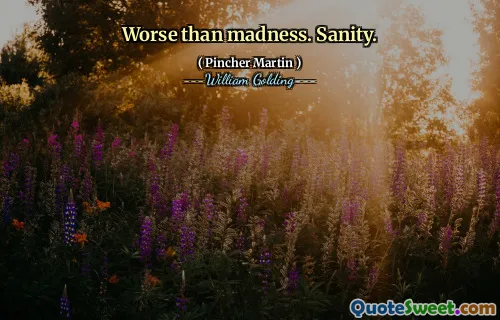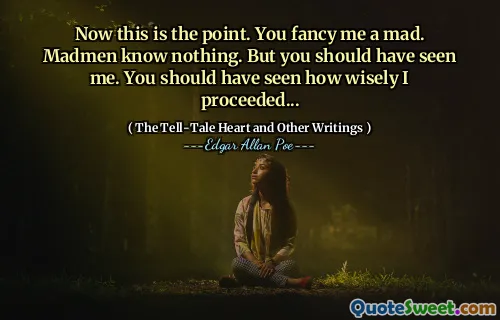If I was crazy, would I know it? That's what being crazy was, wasn't it? You thought you were fine. Everyone else knew better.
In Kelley Armstrong's "The Summoning," the protagonist grapples with the complexities of sanity and self-awareness. The quote reflects a profound question about the nature of madness: if one is truly mentally unstable, how can they recognize their own condition? This introspection suggests that madness often blinds individuals to their own realities while those around them may have a clearer perspective. The character's struggle illustrates a central theme of the book, where personal perception clashes with external judgments. The duality of feeling normal while being perceived as abnormal creates a sense of isolation and conflict. Ultimately, the narrative explores the thin line between sanity and insanity, prompting readers to reflect on the meaning of reality and the reliability of one’s own mind.
In Kelley Armstrong's "The Summoning," the protagonist grapples with the complexities of sanity and self-awareness. The quote reflects a profound question about the nature of madness: if one is truly mentally unstable, how can they recognize their own condition? This introspection suggests that madness often blinds individuals to their own realities while those around them may have a clearer perspective.
The character's struggle illustrates a central theme of the book, where personal perception clashes with external judgments. The duality of feeling normal while being perceived as abnormal creates a sense of isolation and conflict. Ultimately, the narrative explores the thin line between sanity and insanity, prompting readers to reflect on the meaning of reality and the reliability of one’s own mind.

